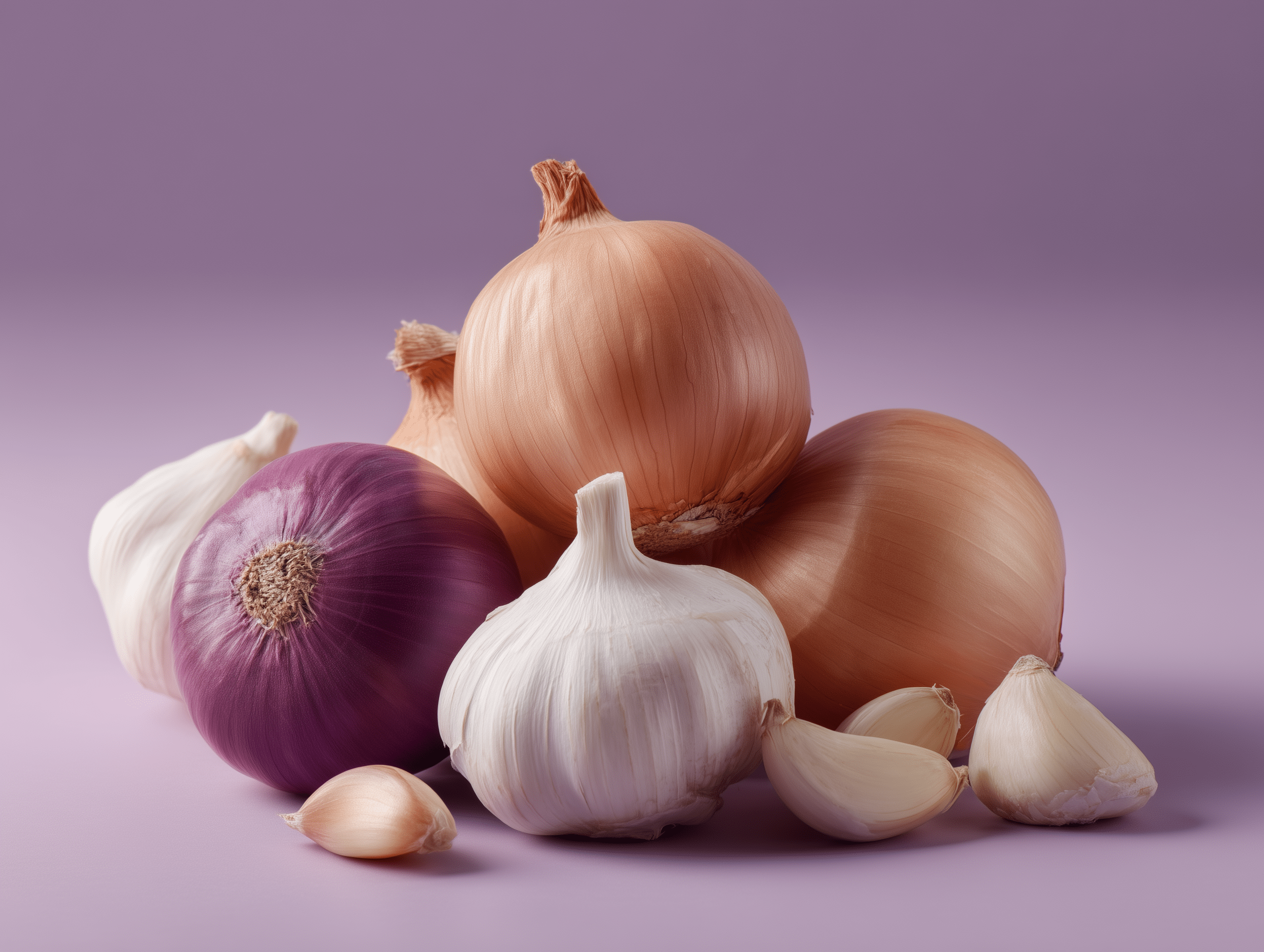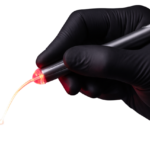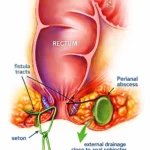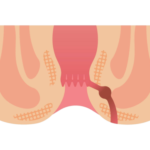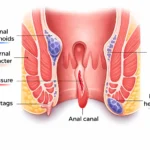Prebiotics and probiotics are often-talked topics with both terms used interchangeably—mostly due to a lack of complete understanding of their meaning, context, and mechanisms of action. Even though they are thought to benefit only gut health, they also help in several other aspects of the body functioning. So let us understand the importance of how prebiotics and probiotics improve our gut health naturally. Before delving, let us understand a bit about our gut.
Most people refer to the intestinal regions as the gut; this is medically termed as the Gastrointestinal Tract (GI tract), and starts from the mouth and ends at the anal opening. Food which enters the mouth passes through parts like the oesophagus, stomach, intestines and finally, the waste goes out through the anus. This food is digested mainly in the stomach while the nutrient absorption is done in the intestines. Thus, a strong and healthy gut equals a well-functioning body. Like physical exercise resulting in strong muscles, consuming good quantities of pre- and probiotics aid in boosting gut health naturally.
Integrating natural sources of fiber and fermented foods into your daily routine is an excellent way to nourish your microbiome, but if you are still wondering what probiotics should i take to achieve the best results, it is essential to understand how these supplements work in tandem with broader lifestyle changes. While prebiotics and probiotics provide the foundation for a balanced digestive system, achieving long-term wellness often requires a comprehensive approach that includes hydration, stress management, and diverse dietary habits to ensure your internal ecosystem remains resilient and thriving
 Probiotics in boosting gut health:
Probiotics in boosting gut health:
Probiotics are foods having live microorganisms like good bacteria and yeast, when eaten in enough quantities will settle and multiply inside your gut and help in bodily functions. Under normal conditions, our gut has almost a hundred trillion probiotic micro-organisms majority of which are bacteria, a few fungi and even some viruses! However, certain lifestyle habits such as chronic lack of sleep, overconsumption of ultrarefined foods, chronic inflammation, and even a few doses of antibiotics can reduce these numbers consequently affecting the gut health.
How do probiotics boost gut health ?
Generally, the effectiveness of probiotics is measured in how many bacteria or Colony forming units (colony is like a few bacteria which divide and make a big family of themselves). So, the bigger the CFU number, the more will be remaining even after digestion in your stomach to settle in the intestine and repopulate it. Once in the gut, they will help by helping in breaking down food and releasing nutrients in a way that our bodies an easily absorb them. Thus, probiotics boost gut function and efficiency naturally.
By aiding our digestion, they also indirectly boost our body health by
1. Digesting dietary fibre and producing short-chain fatty acids (SFAs) like butyrate
2. Regulating the immune system
3. Preventing growth of harmful microbes
4. Synthesizing certain crucial vitamins (e.g., vitamin K, some B vitamins)
5. Maintaining the Gut-Brain Axis (nerve connections through which our brain & gut talk to maintain organ & body functions in sync)
Everyday Probiotic Foods for Better Gut Health ?
Hence, it is necessary to protect our gut microbial numbers and supporting their growth. Two ways to do this are: a) by eating foods having a live beneficial microbial population (aka, probiotics), and b) by consuming foods which the microbes feed on to increase in numbers, aka prebiotics—as explained in the next section.
We Indians have been consuming foods rich in active microbes since early times. Most common examples are yoghurt, pickles, and buttermilk. But with the advancement of cross-cultures and trade, nowadays we have many other options giving us a wide variety to choose from such foods. Foods like kimchi (pickled cabbage and radishes), kefir (fermented milk with kefir grains containing yeast), tempeh (fermented soybean milk), miso (fermented soybean paste using fungi), and kombucha (fermented tea with yeast and bacterial cultures). Fun fact: Indian breakfast staples like idli and dosa also count as probiotic foods.
A healthy adult can safely take about 1 cup of the above-mentioned probiotic foods per day to keep our gut strong with their population.
In very broad terms, a prebiotic is a food which supports the growth of the above-mentioned beneficial microorganisms in the gut. We have a very symbiotic relation with the microbes—we provide food and shelter to them, they in-turn digest our food efficiently.
Role of prebiotics in boosting gut health naturally ?
Prebiotics serve as food for the good gut bacteria. By feeding the gut bacteria daily, we boost their efficiency. When gut bacteria are in their prime health, our food also gets digested effectively. Our stomachs have enzymes for digesting fat and proteins, but the complex carbohydrates from the food remains as such. And when this reaches our gut, the bacteria gears into action and digests it to release something called short chain fatty acids (SFAs)” or small chains of fat. It is the SFAs which boost the gut health naturally and overall body health in numerous ways like
1. Supporting and strengthening immunity (the large intestine is where most of our immune cells live; so, supporting their growth increases immunity)
2. SFAs go into the bloodstream for brain functioning, reduce stress hormone levels, and affect mood & behaviour
3. Improving heart function by elevating HDL levels
4. Improving skin conditions such as dermatitis, and
5. Even indirectly improving liver functioning by modifying and increasing the activity of bile secretions.
Prebiotic Foods That Nourish Good Gut Bacteria ?
Since SFAs are so important for boosting our gut health and overall body functioning. We need to feed the good gut bacteria with foods which keep them alive and well, but at the same time give us what we need (SFAs). Foods rich in complex carbohydrates and fibre are the most common prebiotic foods. We can group these foods to understand them easily::
- Veggies such as carrot, onion, cabbage, raw banana, tomato, beans, and sweet potatoes.
- Fruits like semi ripe banana, apple, pineapple, and grapefruit.
- Pulses are excellent sources of complex carbs like Channa, kidney beans, all dals.
- Other foods rich in whole grains like whole wheat pasta, quinoa, wheat bran and oats.
Generally, 3-10 grams of any type of these foods is considered safe to be consumed in a day. Starting gradual quantities of prebiotic and probiotics will help improve gut health naturally.
An easy way to remember all the above is:
Boosting gut health naturally= about 1 cup of prebiotic food + ½ cup of probiotic food per meal.
Many combinations from the food types mentioned before can be good examples. Say carrot onion curds (raita), banana smoothie, vegetable quinoa kichdi, channa curry, tofu pasta etc.
Conclusion:
Pre- and probiotic terms are frequently misused because of a lack of understanding about them. We need good bacteria in our guts which come from probiotic food, and these bacteria need food to grow which are prebiotic food groups. Thus, taking only one food type will not be effective. Nowadays, a lot of companies are aiming to make synthetic forms of both these food types. But combining and consistently eating the food types mentioned in this article gives us ample quantities of both prebiotics and probiotics to boost gut health naturally.
However, certain conditions such as irritable bowel syndrome, chronic inflammation & pain in the gut region, having a weakened immune system (due to recurring infections, chemotherapy, HIV etc.) would need close medical observation while consuming these foods. So, considering altering your diet or upping your gut health game? At Smiles Hospital, Bengaluru, a host of excellent gastroenterologists await to help your gut smile. It is never too late or too far to take an appointment and talk to one of our experts when your gut health is at stake.
Dr. Parameshwara CM is a global authority in Coloproctology and the visionary founder of SMILES Hospitals, with an extraordinary track record of over 50,000 successful surgeries. A true pioneer in the field, he was the first to introduce Advanced Laser Piles Treatment and sophisticated procedures like LIFT, VAAFT, and STARR to Karnataka, revolutionizing the way digestive disorders are treated. He combines surgical precision with state-of-the-art laser technology to offer bloodless, minimally invasive solutions. Call us: +9108099008800 for further help.

